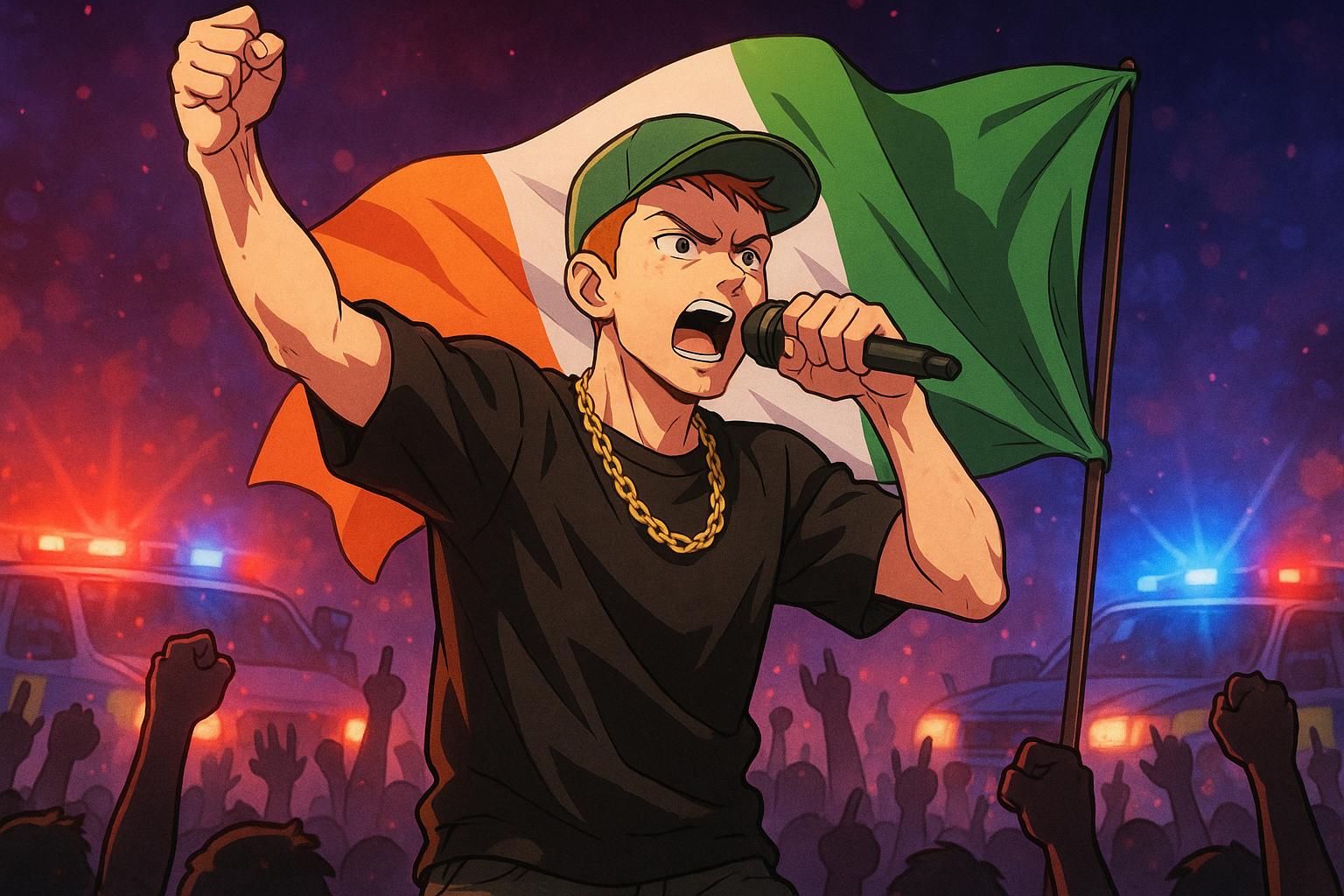British police have charged Liam Óg Ó hAnnaidh, a member of the Irish hip-hop group Kneecap, with a terrorism offence for allegedly displaying a Hezbollah flag during a concert in November 2024. This charge, applied under the Terrorism Act, follows controversial remarks by the band that have sparked significant political and public debates. The Metropolitan Police indicated that Ó hAnnaidh, who performs under the stage name Mo Chara, is scheduled to appear in court on June 18. Investigations are ongoing regarding footage from subsequent performances where the group appears to endorse violent acts and express support for other proscribed organisations.
Kneecap's rise to prominence has been accompanied by polarising reactions. The group, renowned for its contribution to the rejuvenation of the Irish-language cultural scene in Northern Ireland, blends their musical style with sharp political commentary. They have been both celebrated for their artistic expression and condemned for their provocative lyrics, which frequently include graphic references to violence and drug culture. Their political stance has garnered them a dedicated fanbase, yet it has also attracted the ire of political leaders across the UK and Ireland.
The controversy surrounding the band intensified in 2024 when they used platforms like Coachella to criticise Israel’s actions in Gaza, a move that not only drew attention to their music but also raised serious questions about the implications of their political statements. While the group maintains that their intentions have been misrepresented, they find themselves under scrutiny from both public officials and audiences. As the political climate remains sensitive, the implications of their statements resonate deeply, especially considering recent tragedies affecting UK lawmakers, such as Jo Cox and David Amess, both victims of extremist violence.
Amidst the backlash, Kneecap has publicly denied any formal support for Hamas or Hezbollah, asserting their condemnation of violence against civilians. Moreover, they issued heartfelt apologies to the families of the slain MPs, expressing that their comments were not intended to provoke or cause distress. In a climate increasingly wary of incendiary rhetoric, such statements reflect the careful navigation required for artists whose works intersect with contentious political discourse.
Kneecap gained wider recognition with a semi-autobiographical film titled "Kneecap," which premiered at the 2024 Sundance Film Festival and received acclaim, winning an audience award. This success further highlights the dichotomy of their public persona—an artist collective celebrated for its cultural contributions while simultaneously embroiled in serious legal and political ramifications.
As the June court date approaches, the ramifications of this case may extend beyond the individual artist to broader discussions about freedom of expression in the arts. With calls from some UK lawmakers for increased scrutiny of the band's public engagements and festival appearances, the intersection of art, activism, and policy continues to present complex challenges in a post-Brexit and post-COVID landscape where societal divisions are increasingly foregrounded.
This ongoing narrative illustrates how the dynamics of culture and politics are often inextricably linked, particularly in the context of Northern Ireland's historical legacy and the ongoing struggles within the UK. The response from Kneecap, the police, and the public will likely shape future discourses around artistic expression and political commentary.
Reference Map
- Paragraphs 1, 2, 3, 4
- Paragraphs 1, 2, 3, 4
- Paragraphs 1, 3, 4
- Paragraphs 2, 4
- Paragraphs 3, 5
- Paragraphs 3, 5
Source: Noah Wire Services
